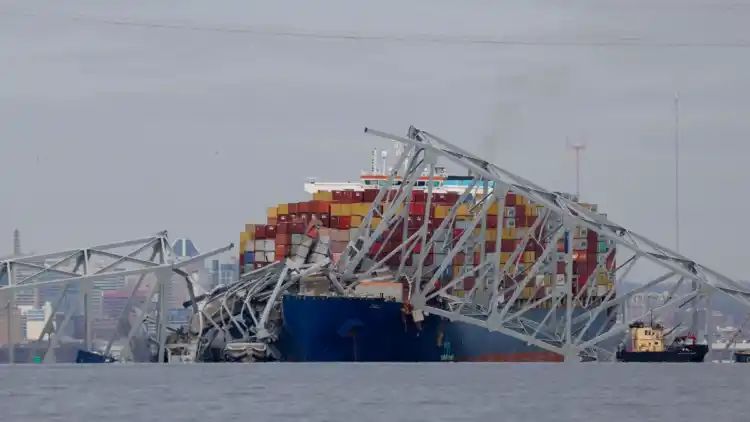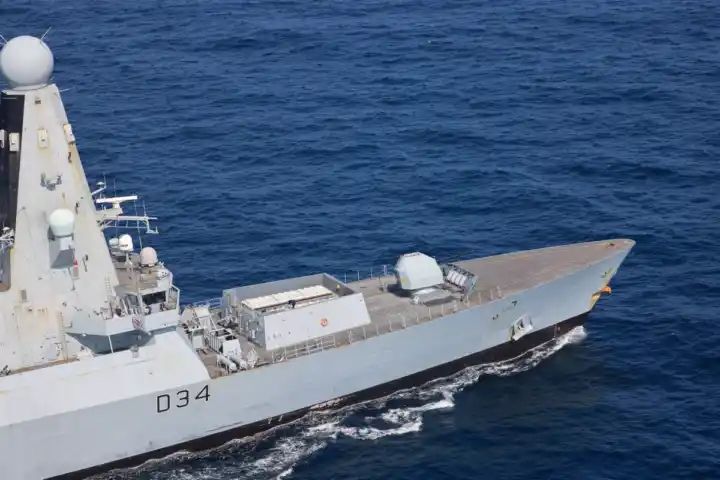Baltimore bridge collapse: ‘Titanic law’ may help shipowner limit liability

The owner of the container vessel involved in the Baltimore bridge collision and subsequent collapse may evade paying hundreds of millions of dollars in damage claims thanks to an obscure law from the 19th century.
The accident resulted in multiple vehicles plummeting into the water, causing widespread disruption across the eastern US transportation network. Authorities have presumed six people dead, while six crew members aboard the ship are reported missing.
Some reports suggest that the disaster could lead to an indefinite closure of the Port of Baltimore, one of the busiest on the US Eastern Seaboard.
Considering all these factors, the shipowner may potentially face claims amounting to hundreds of millions of dollars. But legal experts cited in a Bloomberg News report mentioned that the ship’s owner could potentially minimise liability by utilising a law similar to the one invoked by the owner of the Titanic to limit compensation following its tragic sinking in 1912.
At the heart of the legal repercussions lies Grace Ocean, headquartered in Singapore, the owner of the container ship Dali.
The vessel collided with the Francis Scott Key Bridge on Tuesday at the commencement of a journey chartered by the shipping behemoth Maersk. It may be noted that the company could face a flurry of lawsuits, including the bridge’s owner or anyone who demands compensation for personal injury or emotional distress.
These claims may be directed toward the shipowner and not the agency that operates the bridge. This is because stationary objects are not at fault if a moving object (vessel) hits them, according to Michael Sturley, a maritime law expert quoted in the Bloomberg News report.
But a United States federal law could come to the shipowner’s rescue.
What is the Titanic Law?
Martin Davies, the director of Tulane University’s Maritime Law Center, told the publication that an 1851 law could lower the exposure to tens of millions of dollars by capping the shipowner’s liability for how much the vessel is worth after the crash, in addition to any earnings it collected from carrying the freight on board.
The Limitation of Liability Act of 1851 is a United States federal law that allows shipowners to limit their liability to the value of the vessel after an accident, as well as any pending freight. It was enacted to encourage investment in the maritime industry by providing a degree of financial protection for shipowners.
This law, which was referenced by the owner of the Titanic in a Supreme Court case over a century ago, allows ship operators to limit their liability for damages arising from maritime incidents.
Davies told the publication that the shipowner may have to shell out an eight-figure sum, which is hefty, but “considerably less” than the full claims total.
Lawrence B. Brennan, an adjunct professor of law at Fordham University School of Law in New York and a specialist in admiralty and maritime law, told Bloomberg that it is likely that the operator of the Dali will initiate legal proceedings in the United States under the 1851 law.
Insurance firms to provide legal support
Additionally, the shipowner’s insurance coverage would provide support in addressing the legal risks. The cargo carried across the world’s oceans is insured by a division of the International Group of Protection and Indemnity Clubs. This organisation oversees twelve major mutual insurance associations for shipowners.
A crucial aspect in assessing insurance claims will involve establishing whether the incident resulted from negligence, and if so, identifying the responsible party, or if it stemmed from mechanical failure, as per Bloomberg Intelligence. The vessel is covered by the Britannia Protection and Indemnity Club, a mutual insurance association owned by shipping companies. This club is amongst the twelve entities constituting the International Group of P&I Clubs.
Bloomberg Intelligence also suggested that Maersk might not bear liability since the Danish company didn’t have its crew on the vessel, and the ship was operated by a charter company.
Stephane Kovatchev, a credit analyst at Bloomberg Intelligence, said, “Maritime insurance is expected to offset a portion of the expenses, but the uncertainty regarding total liabilities and their settlement may impact Maersk’s spreads in the short run.”





